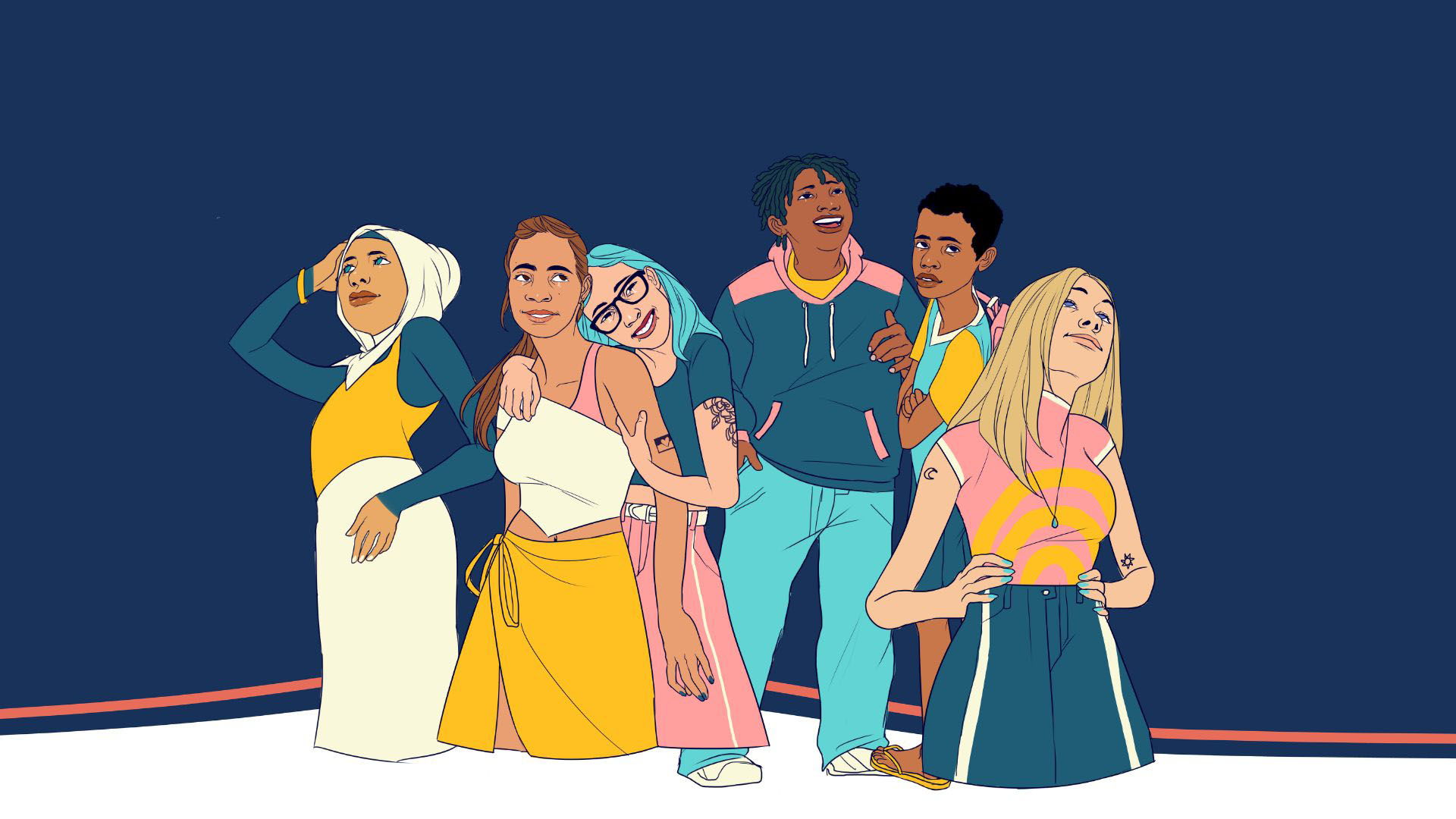For all young people
[Music]
[Speaker 1] What is important to you as young Queenslanders? No, you go.
[Speaker 2] Um, what's important to me as a young Queenslander? Uh, equitable educational opportunities regardless of status, race, um ... rural, regional location.
[Speaker 3] Something that's important to me as a young Queenslander is um, mental health care and mental health education. So, making sure that everyone has like an equitable opportunity to access mental health care and that those who are giving mental health care and helping those who might be in um, distress are educated enough to do that effectively.
[Speaker 4] Um, one thing that's important to me is that young people actually have a say in things that will affect them and actually be informed on what they're having a say in so they're educated about it.
[Speaker 5] Um what's important to me as a young person is like friendships and family having people around and me.
[Speaker 6] Um what's important to me is access to healthcare that people need without experiencing barriers and the extra cost associated with that just being able to access what we need and where we need it.
[Speaker 7] Um, one thing that is is important to me as a young Queenslander is not only that I'm being informed of the things that are being changed and being done regarding us, but they were actually being heard.
[Music]
As we continue to build more inclusive communities, young people have the space and opportunity to explore their individual identities and reflect on how their experiences, relationships and backgrounds can influence their lives.
Each person's identity is made of different pieces. Each element may have their own needs and when they are brought together, they may interact or conflict in unique ways. Intersectionality is the concept that examines how these different aspects of identity intersect and interact, shaping a person's perspectives and experiences. As we continue growing as a society, our understanding of these dynamics and the corresponding support a person may need will refine as we gain better understanding of intersectionality.
There is a clear need for us to work together to create strong systems, relationships, and supports that will affect environments and outcomes for young people as they navigate the pathways on their own journey through life.
Ensuring our programs, interventions, and services are accessible for all young people is at the heart of our vision for the future. We commit working together across government to build a more equitable and supportive environment for everyone, particularly those who may face greater challenges in accessing opportunities as they navigate life’s ups and downs, such as the impacts of discrimination, financial or relational stress, social isolation and loneliness, and other stressors. Our commitment includes ensuring support for young people who:
- are Aboriginal and/or Torres Strait Islander
- identify as women, girls, non-binary, or gender diverse
- have lived experience of disability or chronic illness
- are Culturally and Linguistically Diverse
- identify as LGBTQIA+
- are based in regional or remote areas
- are young carers or parents
- are currently struggling to find a job or retain employment
- are in need of addiction support services
- have experience of the justice system
- have experience of homelessness or housing stress
- have experience of out-of-home care
- are impacted by domestic and family violence and abuse.
